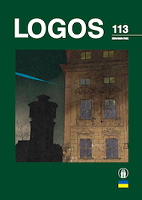Dvilypis diskurso analizės pobūdis
Dual Character of Discourse Analysis
Author(s): Irena DarginavičienėSubject(s): Social Philosophy, Contemporary Philosophy, Structuralism and Post-Structuralism, Theory of Communication
Published by: Visuomeninė organizacija »LOGOS«
Keywords: Communication; discourse; reality constructing theory; critical discourse analysis;
Summary/Abstract: In modern world, the ability to use the power of words effectively is highly valuable. The present paper looks into communication process as a discourse and provides the insight into different approaches to discourse analysis. Two traditional approaches to discourse analysis -the structuralist approach and the functionalist approach – speak for the difference in the way the accents are placed while defining discourse. The notions of communication and discourse are recognized as interrelated. Discourse can be viewed as an interaction with a certain purpose, rather than isolated articulation of information, it therefore can be used as a synonym of communication. The interaction of the social, economic, political, and other contexts in which the language occurs forms the reality-constructing dimension which means that language represents and contributes to the production and reproduction of social reality. Critical discourse analysis focuses on the approach that language choices are not accidental. The approach of the involvement of rhetoric means focuses on persuasive aspect of language and the tools that assist in achieving a desirable impact of the communication.
Journal: LOGOS - A Journal of Religion, Philosophy, Comparative Cultural Studies and Art
- Issue Year: 2022
- Issue No: 113
- Page Range: 85-94
- Page Count: 10
- Language: Lithuanian

